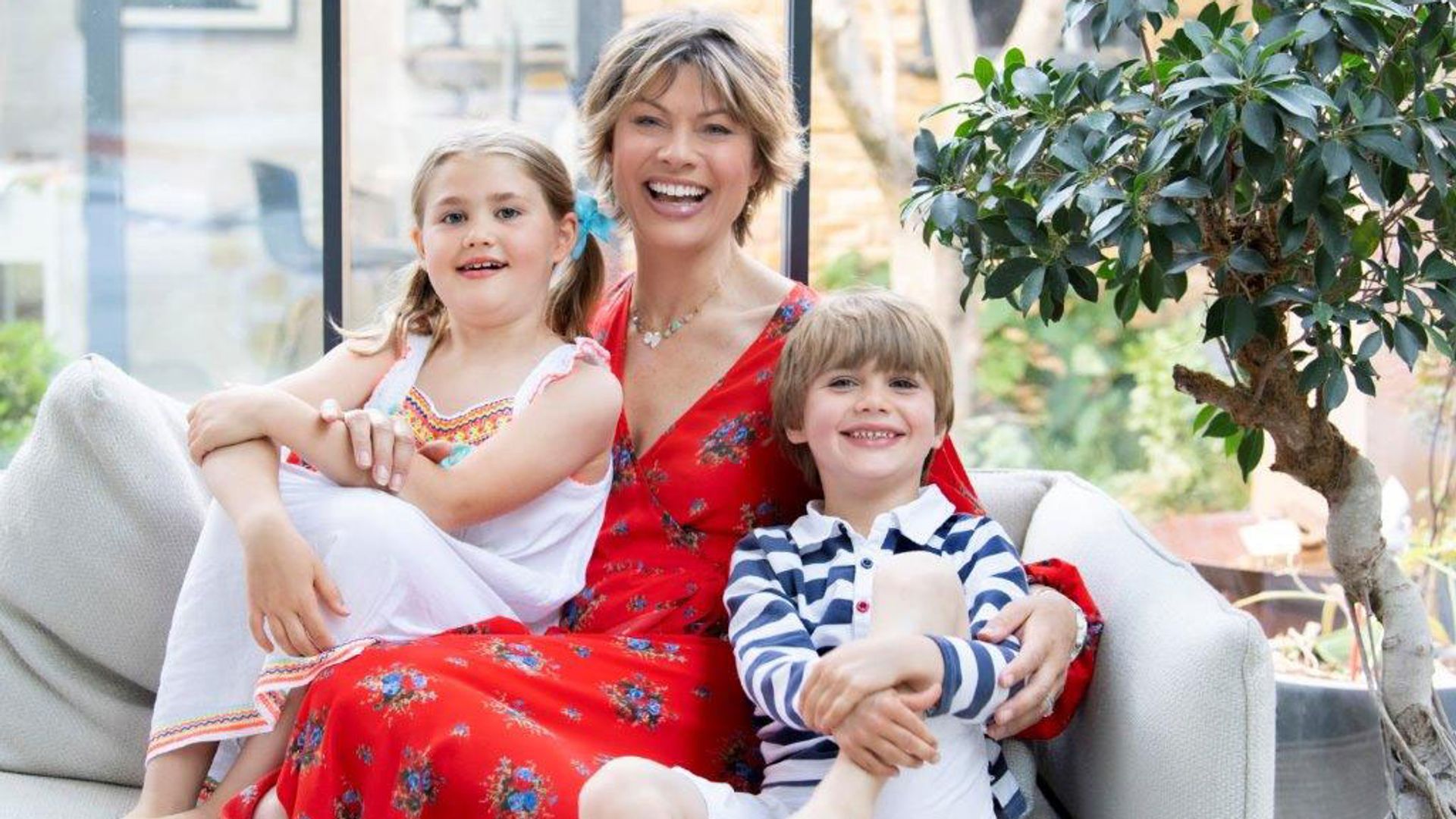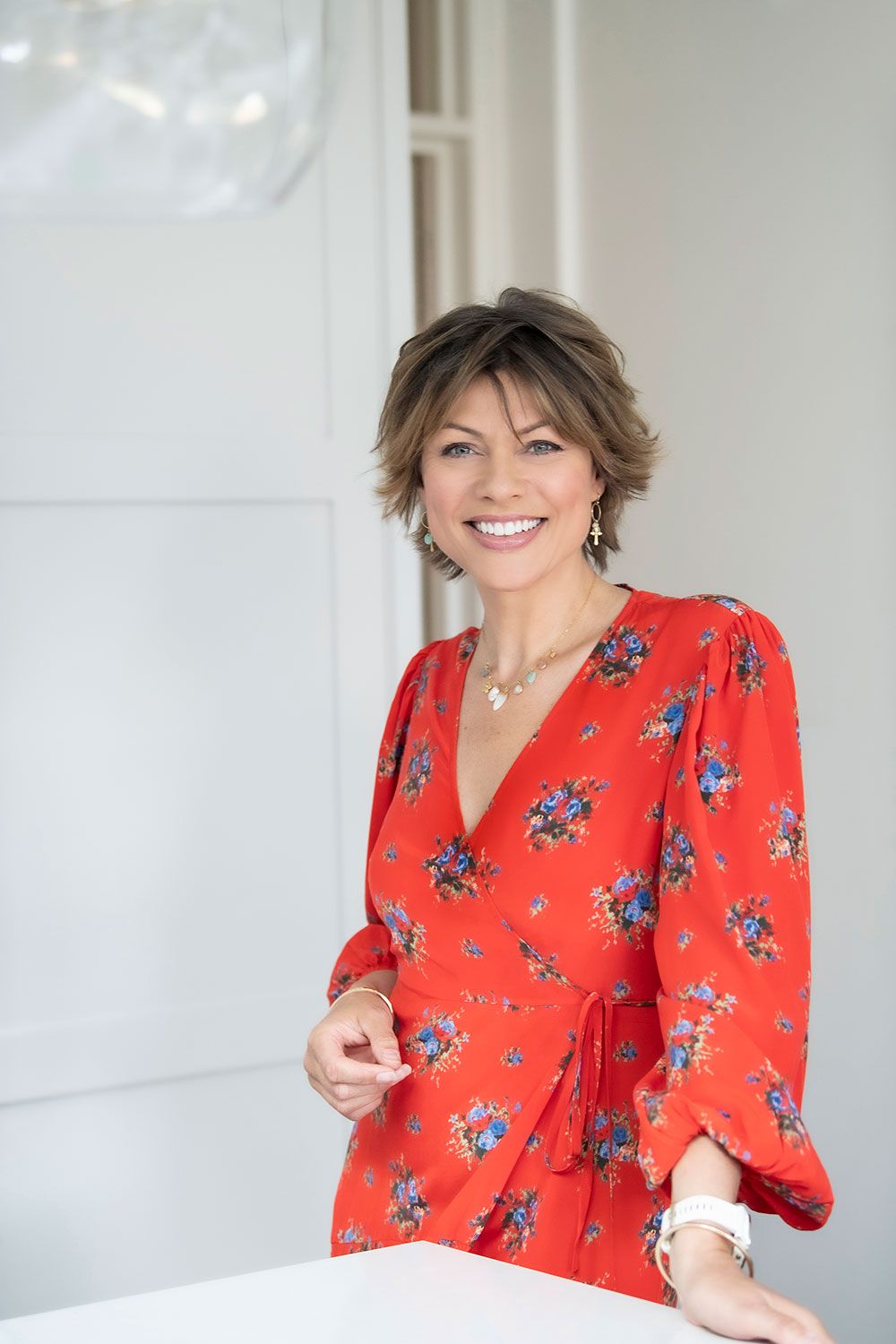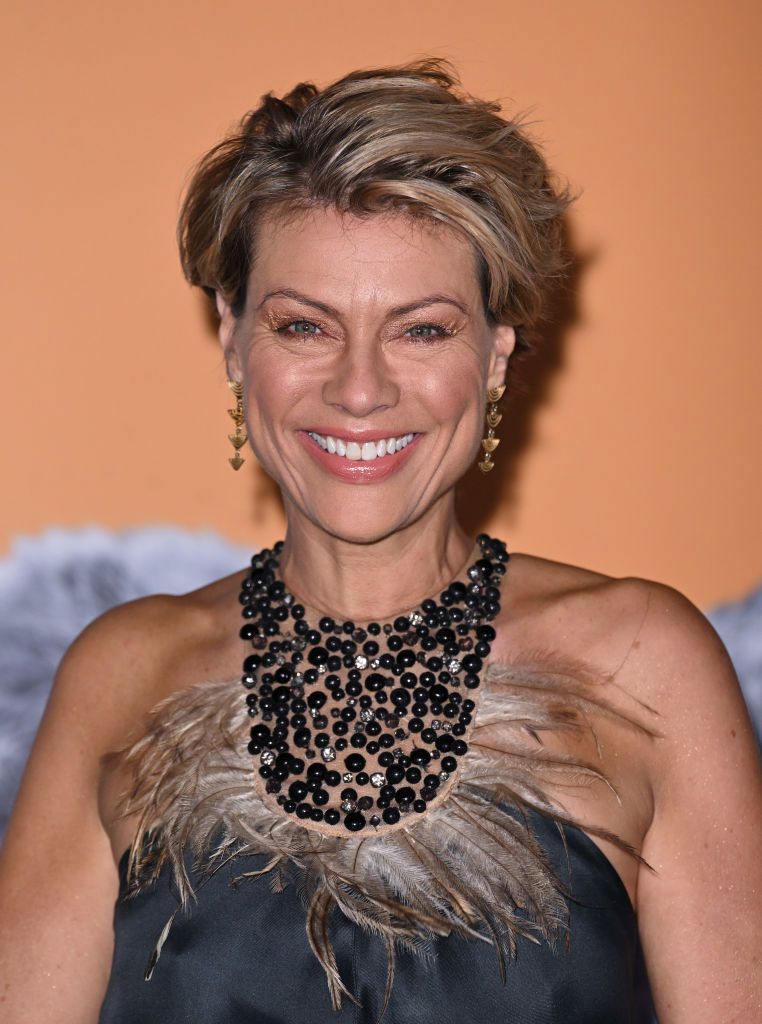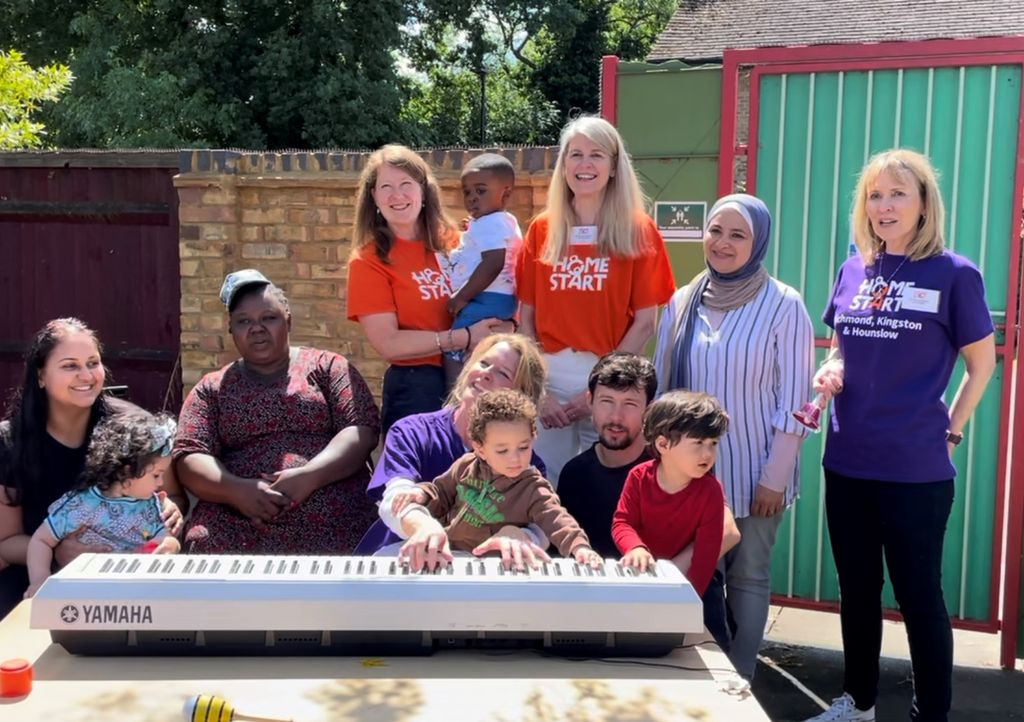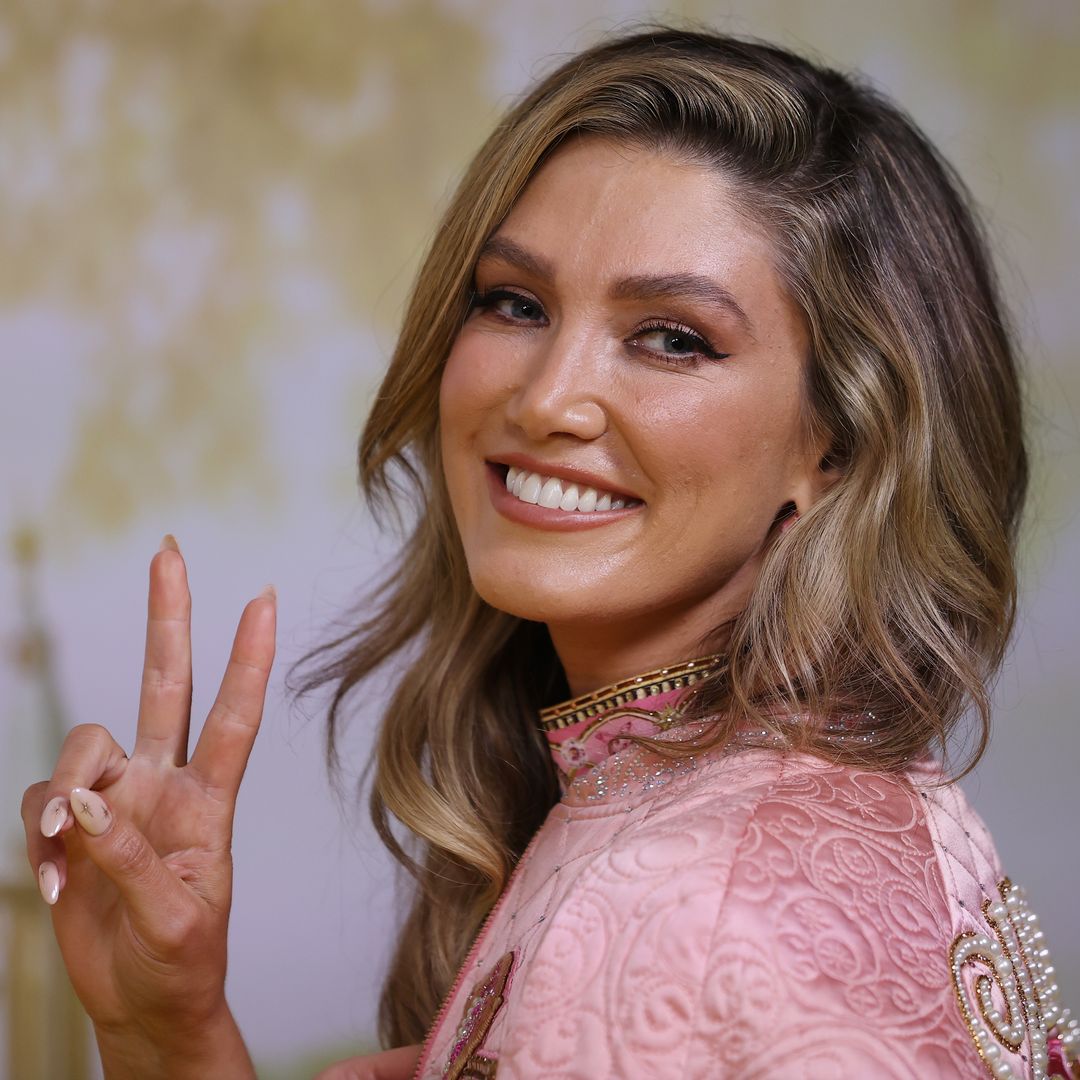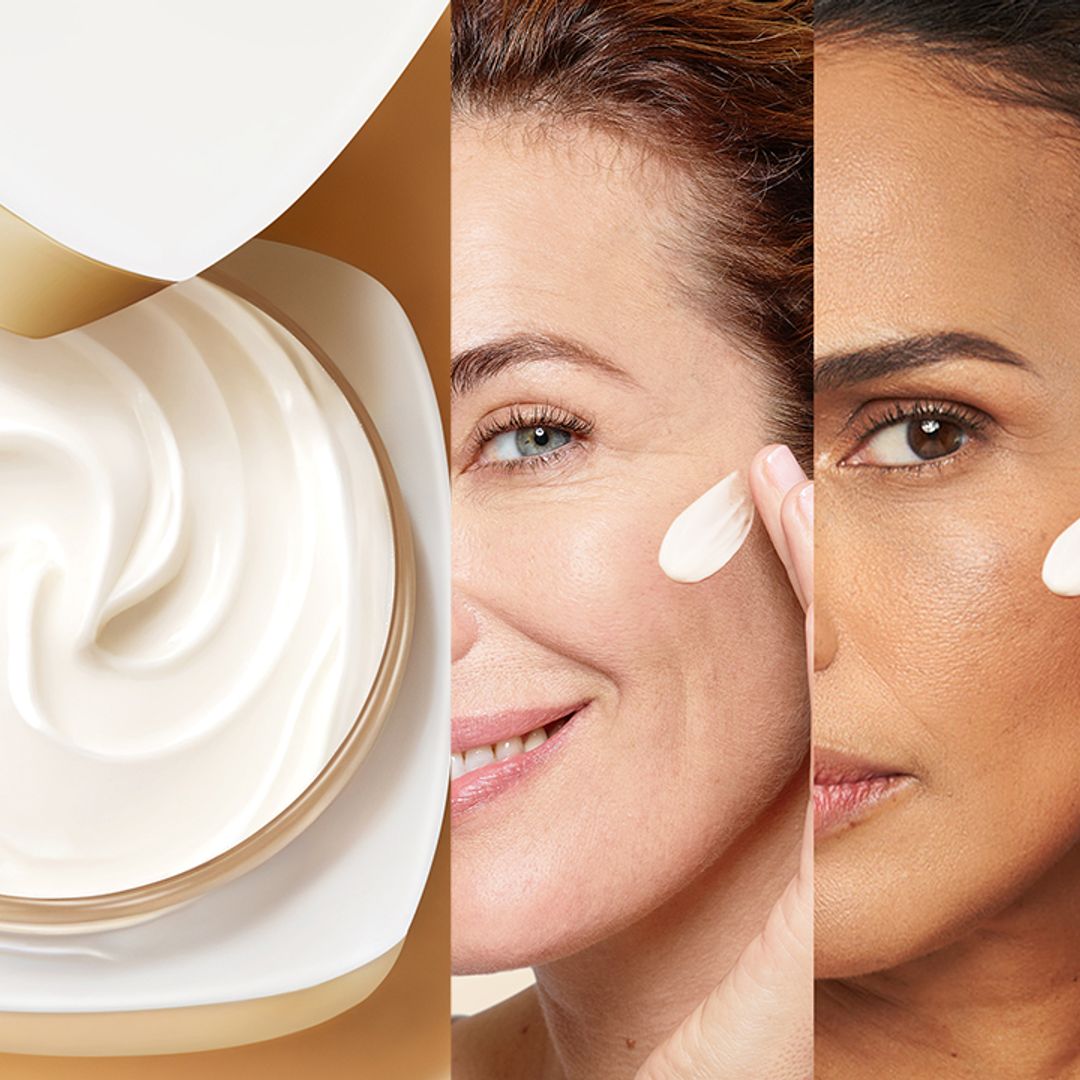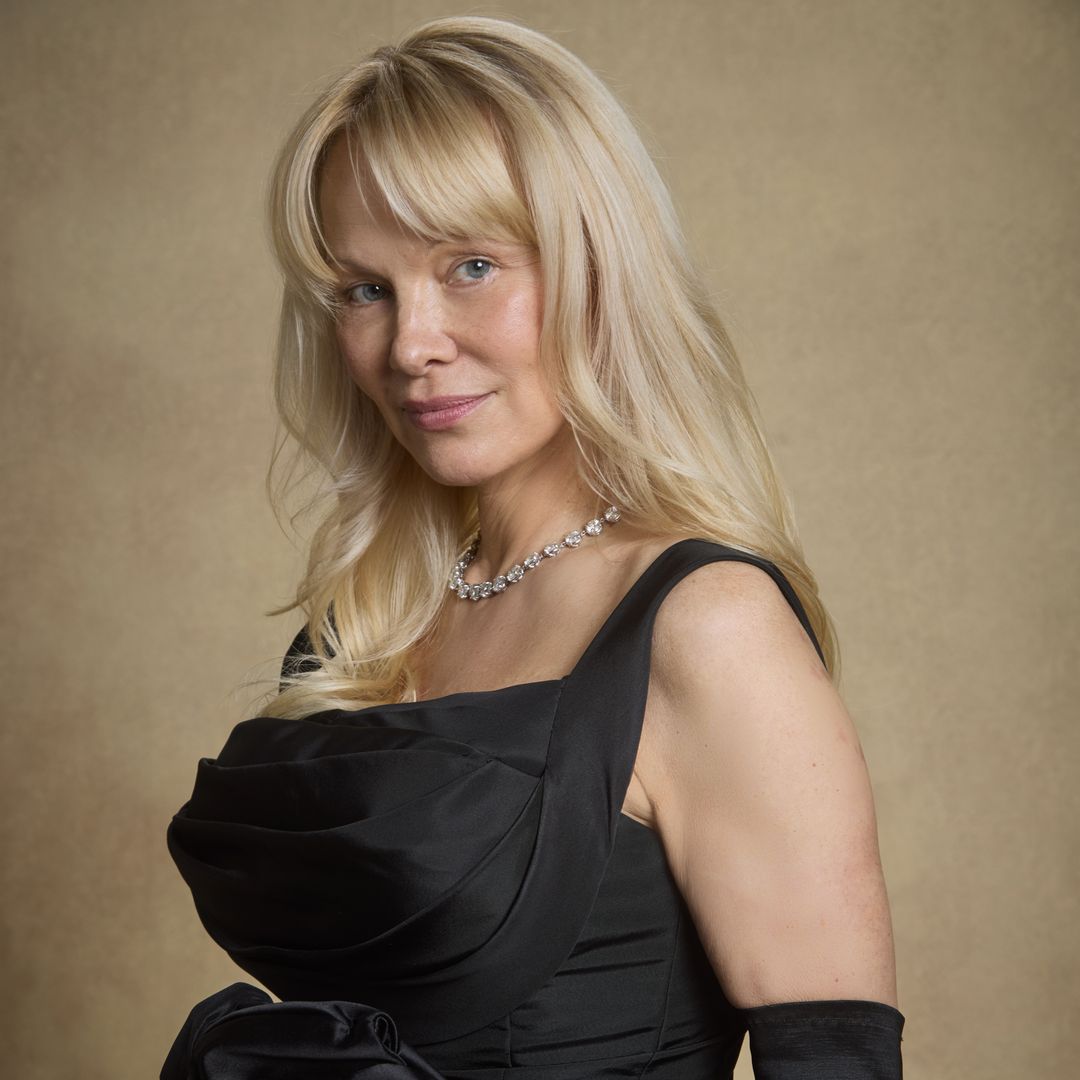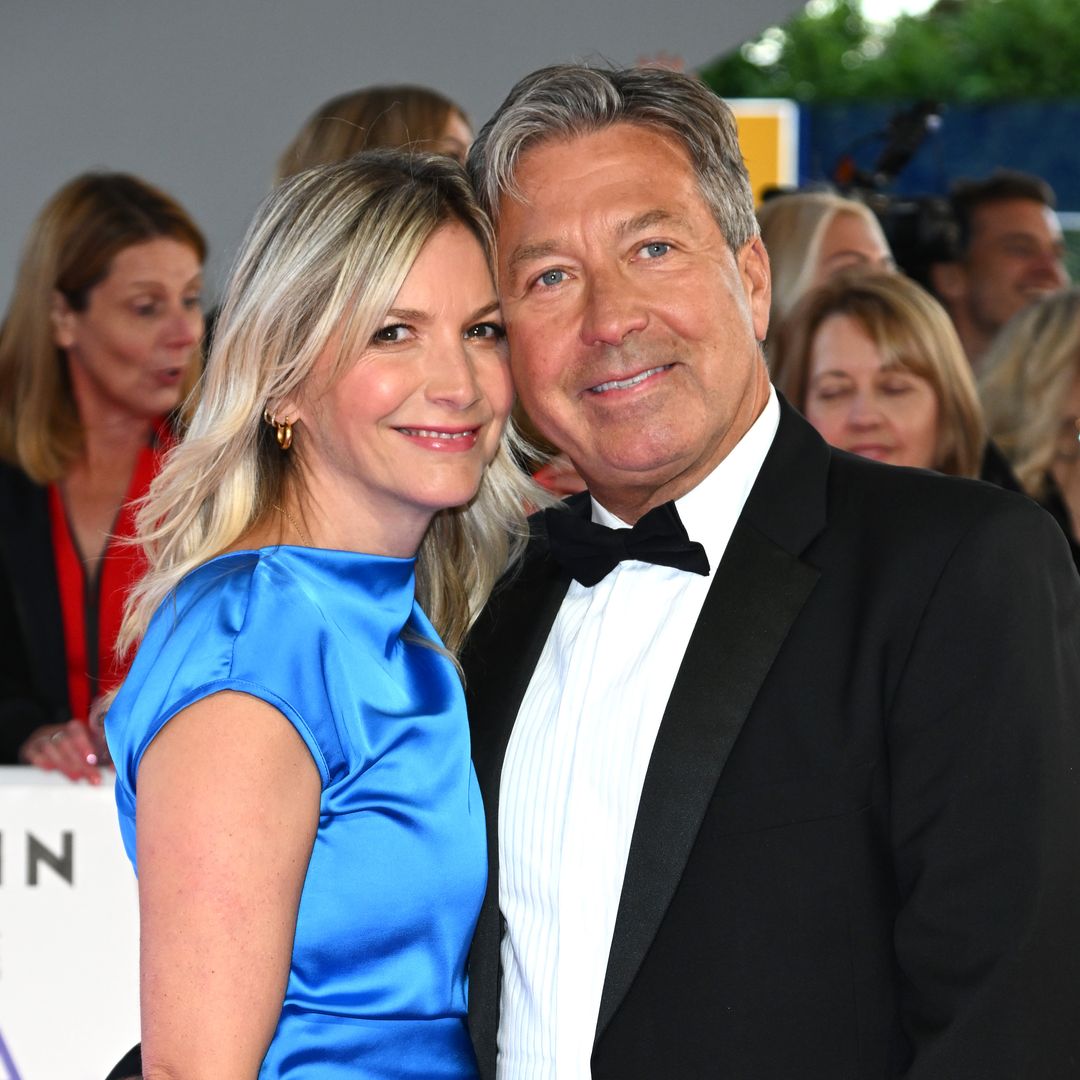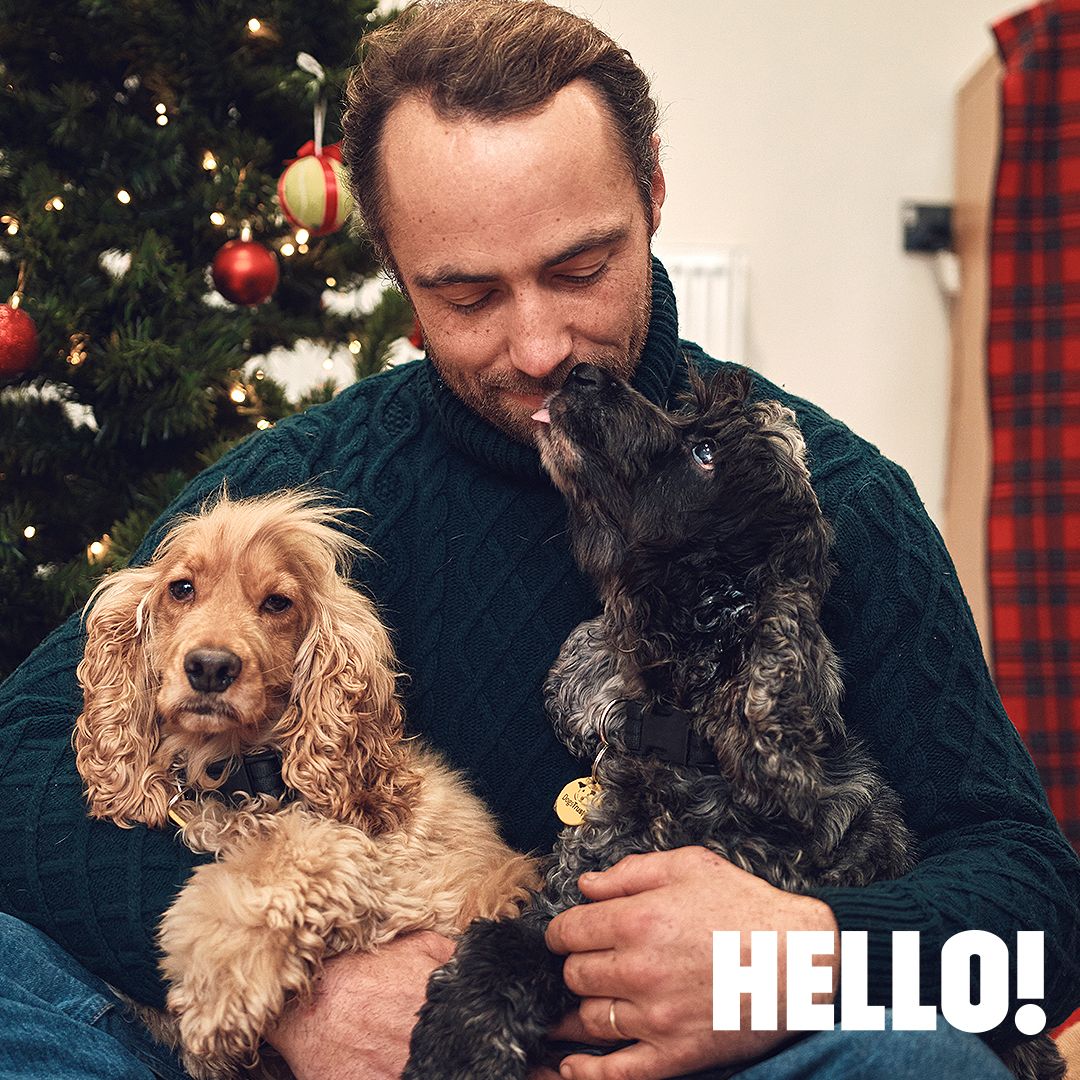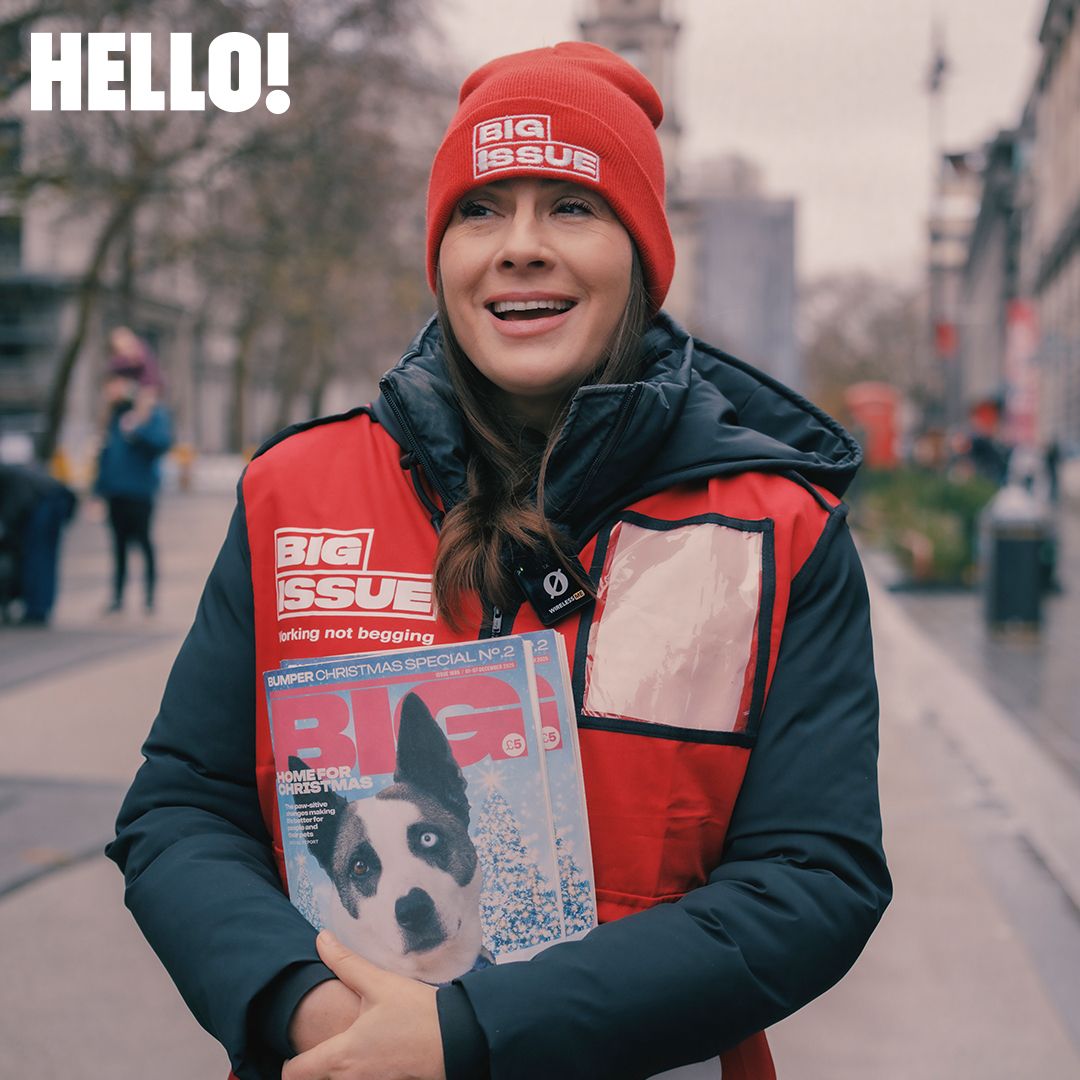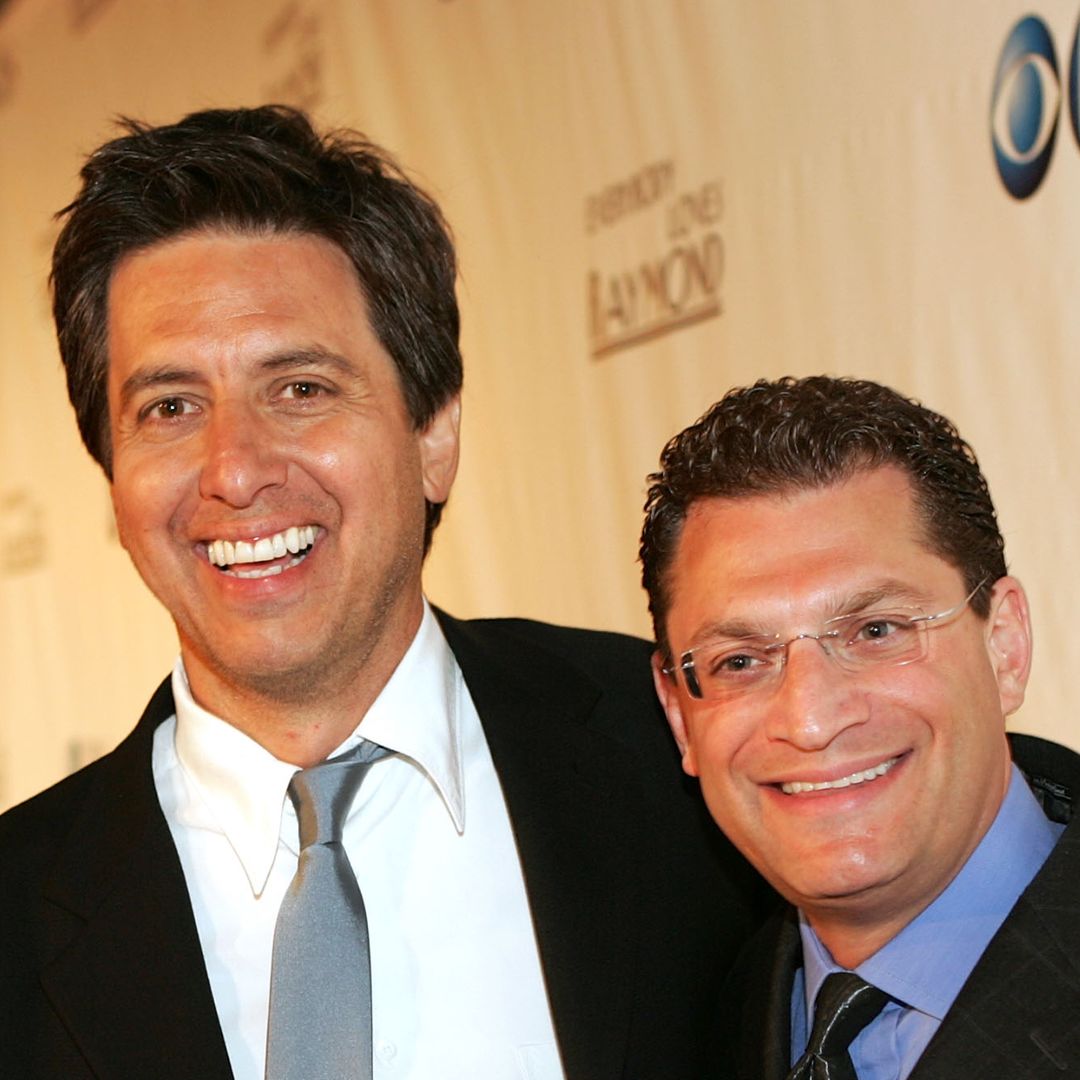A broadcaster, journalist, 2018 Strictly Come Dancing contestant and the author of best-selling parenting guide There's No Such Thing as Naughty, Kate Silverton has retrained as a child therapist. She has children Clemency, 11, and nine-year-old Wilbur with husband Mike Heron and lives in London. Speaking exclusively to HELLO!, Kate opens up about the next chapter of her life....
Two years ago, I swapped a successful career as a BBC journalist and newsreader to become a child therapist. Motherhood and my academic background in child psychology inspired me, as did what I had learnt from years of interviewing extraordinary people working in mental health. I now volunteer at a primary school in London, working clinically with young children, some of whom have high and complex levels of need. I find immense joy in my work and my clients, who inspire great hope in their healing.
Children can teach us so much about life, about what's really important and what all of us ultimately need: connection. Feeling connected to others makes us feel safe, secure and cared for. To thrive, children need three things: to feel safe, loved and understood. And parents need that too.
The difficulty is that we are all still emerging from one of the most traumatic events in our recent history. The isolation that families endured during the Covid-19 lockdowns and the difficulties many face as a result, whether in the form of mental-health challenges or financial hardship, have been devastating.
In my book There's No Such Thing as Naughty, I explain the neuroscientific basis for a child's behaviour – that what a child experiences when they are young will influence the adult they become. Without support, many children, and their parents, will carry the scars of the experiences of the past few years.
It doesn't have to be that way. I share research that speaks of the value of a "wisdom circle", created when parents and communities come together to offer support in times of crisis.
My work and research in the field of trauma has shown me that it's not necessarily the crisis that creates trauma wounds, but rather what doesn't happen in the aftermath.
To have hope, we must help each other, and to do that we need connection, in the form of emotionally available others. In short, it's in our relationships that we can overcome.
Sadly, since the Industrial Revolution, the nuclear family has become more prevalent and we have moved away from an extended-family model that gave parents support through crises. A lot of traditional support networks – grandparents, aunts, uncles, siblings and members of tight-knit local communities – simply aren't available any more. There are also more single-parent households, where parenting can often be an isolating experience.
I always tell parents that if you are finding things difficult, it's not you who is failing, it's society. We need to change that.
One of the charities leading the way is Home-Start Richmond, Kingston & Hounslow in London. Its work centres on in-home support, offering families a crucial replacement for that missing human connection. Home-Start RKH can put a trained volunteer on the doorstep of every family that needs it, offering compassionate, non-judgmental and confidential support.
Families may be struggling to cope with things such as perinatal mental health; disabilities and physical health problems; separation, bereavement, loneliness and isolation; multiple births; financial wellbeing; domestic abuse and more.
The charity's volunteers are 99% female and they change the lives of women and their families by sharing their own experience of parenting and acting as positive role models. This is passed down to the next generation, building confidence and independence.
MORE: Daniel Radcliffe makes honest confession about welcoming baby son with Erin Darke
As psychoanalyst and paediatrician Donald Winnicott argued in the 1970s, home is where we start from. As we mark the International Day of the Girl on Wednesday, I am proud to be supporting Home-Start RKH and a major charitable initiative it is part of, which is raising funds for women's and girls' charities.
Over the past 16 years, the charity Big Give has pioneered the concept of "match funding": asking funders – typically philanthropists, foundations or companies – to match individual donations to charities. So, £50 from one person becomes £100 for a good cause after being doubled by a Big Give match-funding champion.
It is the UK's biggest match-funding platform, working every day to multiply people's generosity. This is particularly important when the cost-of-living crisis is squeezing charitable giving. This week, Big Give will launch a campaign to support charities that are tackling pressing issues facing women and girls in the UK and the rest of the world, including Home-Start RKH.
From 11 to 18 October, the Women and Girls Match Fund aims to raise over £2m for dozens of charities, including some working in domestic abuse, gender inequality in the workplace, menopause and period poverty. Over half the world's population is female and the need is more pressing than ever, especially as so many of the charities working in this space are underfunded.
Please give to the campaign if you can, confident in the knowledge that Big Give will make your money go twice as far. To support Home-Start RKH and other charities taking part in the Big Give's Women and Girls Match Fund, visit biggive.org/women-girls-match-fund between 11 and 18 October.
